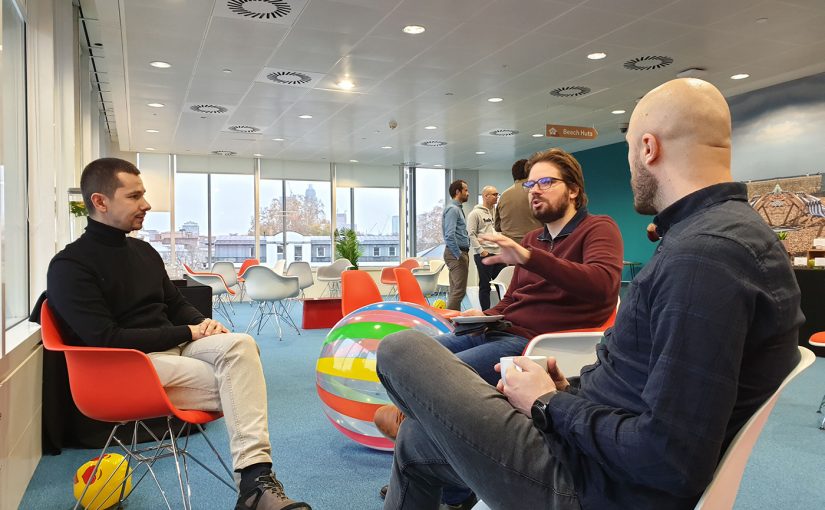Albert Einstein famously said, “Once you stop learning, you start dying.” Sure, some people might disagree with the literal truth of this (as dark as a life without learning sounds). But there’s no doubt that it rings loud and clear for digital companies. Our world is changing so fast that relying on “yesterday’s knowledge” is a recipe for disaster.
That’s why a crucial part of working at FishingBooker is building your personal skills and keeping on top of industry trends. And what better way to learn than straight from the horse’s mouth? Last month Stefan, Marko, Aleksandar, and Petar got their school caps on and traveled all the way from Belgrade to Google’s Academy in London. Their aim: to uncover new data about how people interact with different technologies. Here’s how it went.
What: Google Digital Academy’s Connected Consumer Lab
Who: 2 x Product Designers, 1 x Product Manager, 1 x Marketer
Where: London, UK
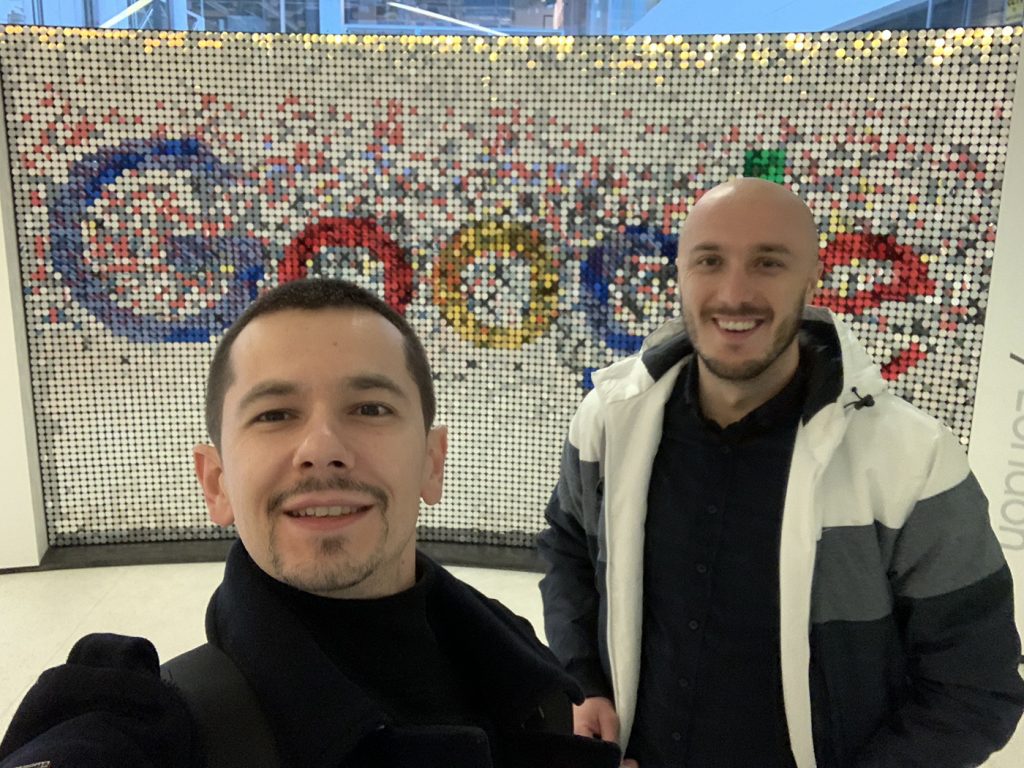
What is the Google Academy?
In Google’s own words, their academy masterclasses “help you understand how digital solutions solve business challenges and put in place plans and processes to help you accelerate transformation.” As an active Google Partner, FishingBooker gets to take part in these, and we do so whenever there’s a session that covers what we’re working on at the moment. Straight from Google, at Google, they give us expert advice from world leaders in digital industry.
The “Connected Consumer Lab” touches on how mobile is exploding in online businesses. Even more so, it teaches companies how to track and optimize the way users move between different devices, using mobile, desktop, and voice search as they go about their day to day lives.
For a while now, we’ve been well aware that making a good business no longer depends on having a good idea and good people, or even having a good website. It depends on being there for your users at every stage of their journey. Then, using your good idea, good people, and good technology, helping them solve their problems in the most intuitive way possible. That’s what we hoped to learn more about in London.
Just like people use different devices to reach the same goal, we brought along a mixture of teams and approaches. On the one hand, we hoped to learn more about tracking different touch points to analyze our marketing. On the other, we wanted to delve into how people use mobile, to keep FishingBooker at the top of its game, whatever device you’re accessing it from.
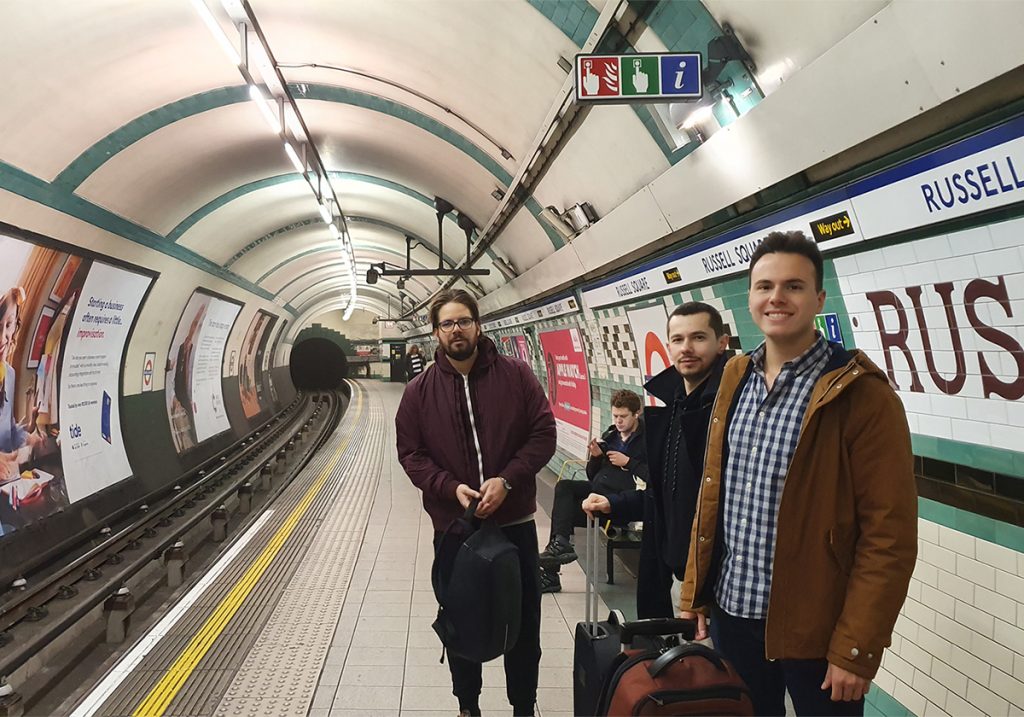
What did we learn?
It’s dangerous to undervalue how important mobile is in ecommerce businesses like ours. We’ve known this for years. But this trip drummed in the fact that nowadays, you can’t just treat mobile as an extension of desktop.
“There’s a big difference between saying you’re mobile first and being mobile first,” explained Petar. It’s no longer good enough to design and create your product on desktop, then make it mobile friendly. As mobile traffic is surging, it’s time to start thinking the other way around.
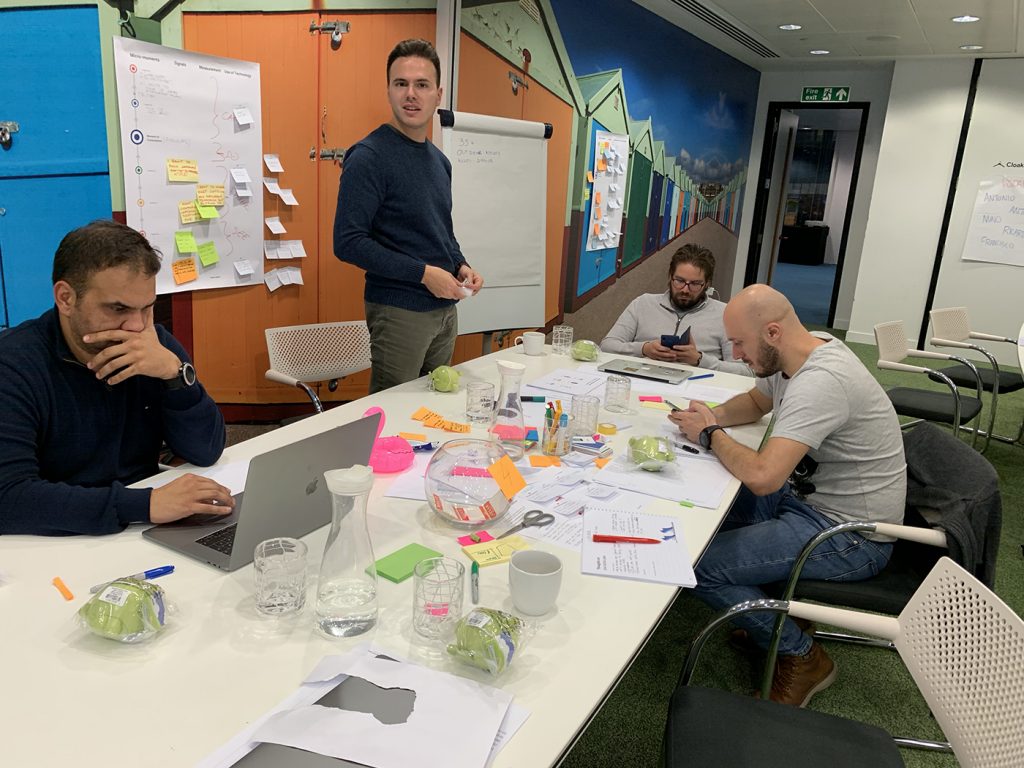
This was clear from the theoretical part of the workshop. But it was the chance to look at our product with a completely fresh set of eyes – as well as from the mobile perspective – that made a real impact.
There were two other companies taking part in this program. One, a huge mobile network provider, was facing its own challenges in staying agile and interconnected. The other, an insurance agency, was working out how to portray very complex ideas in the simplest possible format.
Their points of view gave us the chance to completely deconstruct our product and see it in a new way. In doing so, it opened up questions about how the very core of FishingBooker works. For instance: in order to properly compare different trips, you have to open tabs to show the various charters. This is much harder on mobile than on desktop. Is there a better way to do it?
Asking questions like this, the team got to look at how fundamental parts of our site work with new eyes.
“Sometimes, we use our old way of thinking to solve new problems,” explained Aleksandar, our Product Manager. “This is known as a ‘Thought River.’ There are definite advantages to this, but it diminishes our capacity to look at things comprehensively and with a deep understanding of the user themselves. For me, the biggest benefit was receiving a roadmap to see how users and brands are interacting today. ”
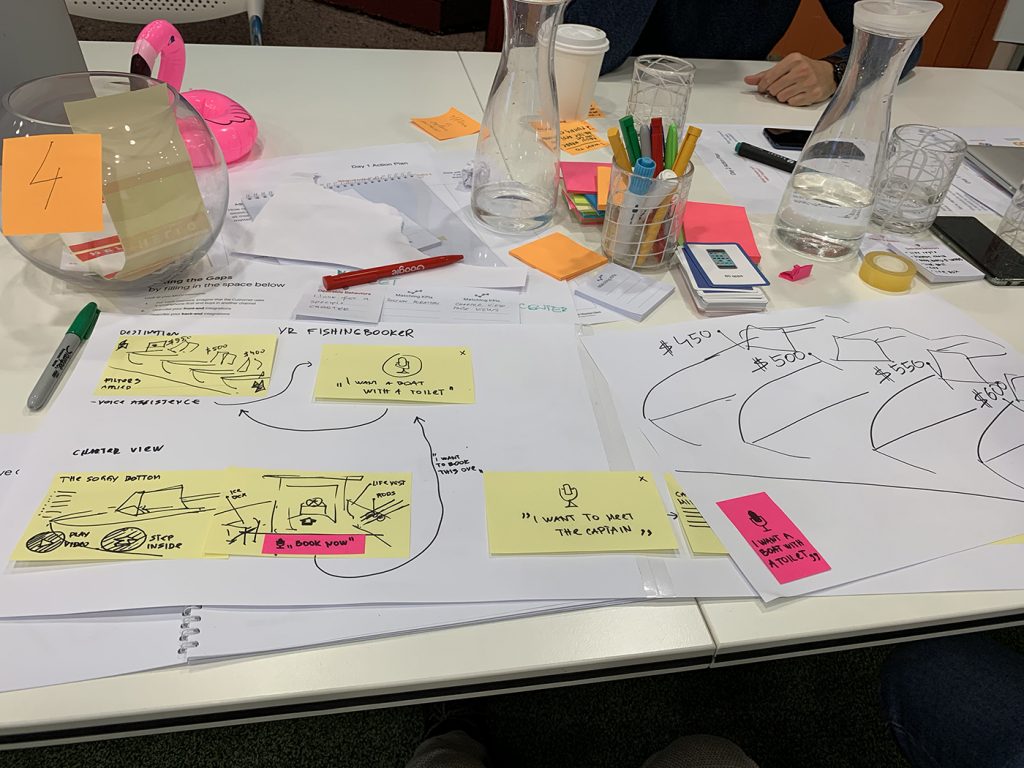
The team also dug deep into new ways of measuring customers’ “micro moments.” That is, looking at the small steps people take, measuring them, and improving them to increase conversion rate. Rather than just looking at which pages people are visiting, it means asking questions such as: “What type of content are they reading? What sort of videos do they watch all the way through? How does that affect the type of trip they book?”
As Aleksandar put it, “The goal isn’t advertizing any more, as much as assisting the user during their journey to fulfilling their needs. This is why the digital era we’re currently in is called the ‘Age of Assistance.’”
There couldn’t be a better time for us to get Google’s input in this. At the moment, we’re developing internal tools for in-depth user analysis. With our new experience, we’re now in an even better position to use them, and Google’s own tools, to improve our users’ experience.
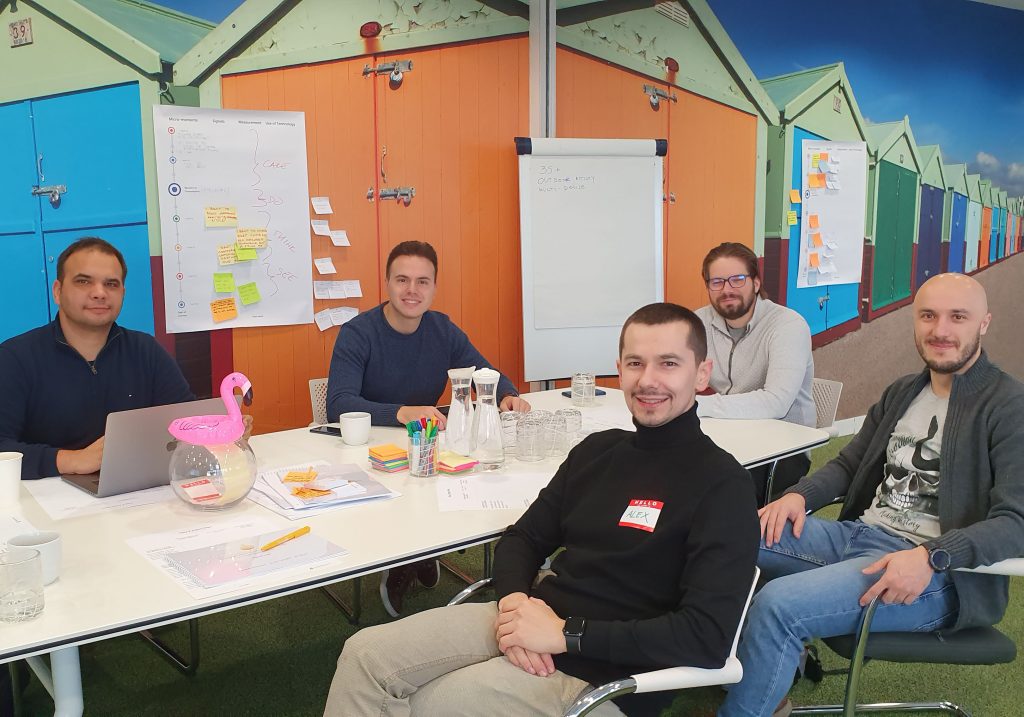
What next?
The takeaways were just as varied as the backgrounds of the people who participated. Each team member has something different to share with the rest of the company, and they’re currently working on shaping up and communicating their ideas.
Thanks to their experience, we’re entering 2020 with the very latest intel about how our customers will use technology to book their fishing trips. If that wasn’t proof that it’s always worth educating yourself, I don’t know what is.
Finally: what did they think of London? As Petar put it, “It’s raining but it’s not raining but you’re always wet.” As a Brit myself, I’d say that’s a completely fair evaluation of the UK’s capital!
Are you always on the lookout for knowledge and want to make products that people will love to use? We’d like to hear from you. Get in touch!
